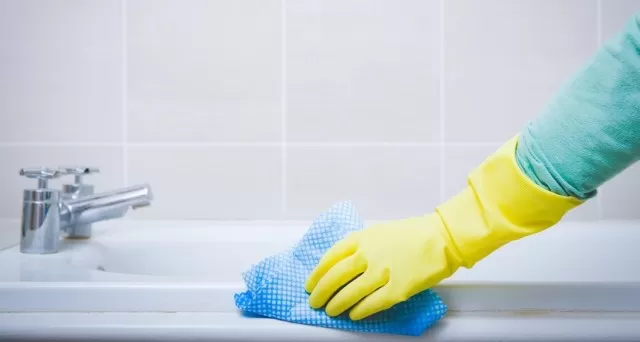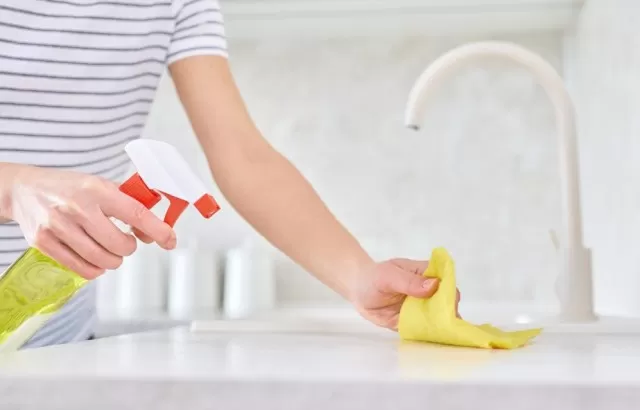Distilled White Vinegar is a highly versatile cleaning product that has numerous uses, such as cleaning windows and removing salt stains from shoes.

However, it’s important to note that being multi-purpose doesn’t mean it’s suitable for all cleaning tasks.
There are certain common household items and materials that can be harmed if exposed to vinegar. Furthermore, when vinegar is combined with other cleaning agents, especially chlorine bleach, it can produce harmful chemical reactions.
Although vinegar is an inexpensive, safe, and easily accessible cleaning option, it’s essential to understand that it may not be suitable for all cleaning needs.
To prevent potential damage, it’s advisable to avoid Using Vinegar on the following ten items.
Materials That You Ought Not To Clean with Vinegar

Anything Containing Chlorine Bleach:
Under no circumstances should vinegar be mixed with chlorine bleach or any products containing it, as this combination produces toxic chlorine gas.
This is an important rule to remember, as it is the most critical one.
Marble, Granite, and Other Natural Stone Surfaces:
Vinegar should not be used to clean marble, granite, or other natural stone surfaces, such as slate.
Whether these surfaces are used as home finishes like countertops, floors, or shower walls, or as household goods like tabletops or serving pieces, vinegar’s acidic properties can cause damage, including pitting.

Grout:
Avoid using vinegar on unsealed or damaged grout, as it can erode or deteriorate it over time.
While sealed grout can handle vinegar cleaning, it’s still recommended to choose non-acidic cleaners to maintain its strength.
stainless steel:
For cleaning stainless steel knives, cookware, and household appliances, it’s better to opt for non-acidic cleaners instead of vinegar.
Prolonged exposure to vinegar’s acids can lead to pitting on the stainless steel surface.
Waxed or Unfinished Wood:
Using undiluted vinegar on waxed or unfinished wood can cause discoloration, so it’s best to avoid it.
Instead, diluted vinegar or non-acidic cleaning agents specifically designed for wood should be used.

Cast Iron:
Vinegar can deteriorate the protective seasoning layer that provides cast iron cookware with its non-stick surface.
Extended exposure to distilled white vinegar can also cause pitting on the cast iron itself.
Electronics:
Avoid using vinegar or vinegar-based cleaning agents on screens of televisions, mobile phones, Computer Monitors, and other electronics.
The anti-glare coating on these screens can be damaged by vinegar, so it’s best to use alternative cleaning methods.

Rubber Gaskets and Hoses:
Vinegar can cause rubber gaskets and hoses to deteriorate if exposed to them for an extended period or repeatedly.
Before using vinegar to clean household appliances like washing machines, refrigerators, or dishwashers, consult the manufacturer’s instructions to ensure that the rubber components can safely withstand vinegar exposure.
Clothes Iron:
Cleaning a clothes iron with vinegar depends on the specific construction of the iron.
To avoid potential damage to the metal components, refer to the user’s manual before you clean with vinegar to descale an iron.
Pet Messes:
Vinegar is not recommended for cleaning up pet messes, especially on soft surfaces like carpets, upholstered furniture, or mattresses.
According to the Humane Society of the United States, strong chemical odors like vinegar may encourage pets to reinforce the urine scent mark in that area. It is advisable to use enzyme-based cleaning products specifically designed for addressing pet messes instead.
*The information is for reference only.